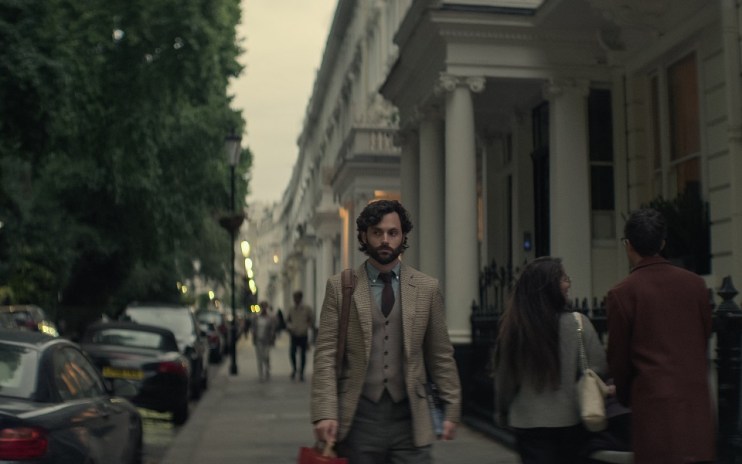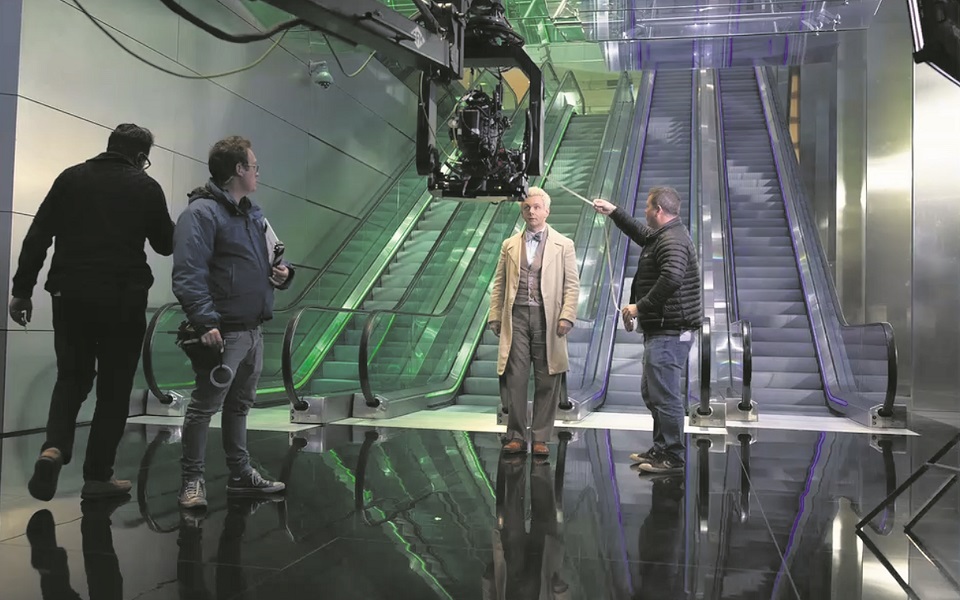London’s a hub for filming new TV shows and movies – but that could soon be over

London is one of the most desirable filming locations on the planet – but its unique locations
are slowly vanishing, finds Adam Bloodworth
Casual viewers tuning into Netflix to watch the latest season of You may have been surprised to see charming psychopath Joe Goldberg strolling through Kensington when new episodes dropped last week. Having swapped New York for London, he then took a nice walk from his obscenely gorgeous West London apartment (way too nice for a professor but anyway) to a meeting in Soho via Commercial Street in Shoreditch. We’ll forgive the continuity errors – it’s just exciting that these big, glossy Netflix shows are choosing our capital to film in.
London has always been a muse for film and TV makers for obvious reasons, but over the past decade, and particularly since the pandemic, there has been unprecedented demand. The creative boom of the streaming providers, now in aggressive competition with each other to produce more and more shows, is the source of the work, but why London?

The capital is a sweet spot for filmmakers. They get a unique tax break of 25 per cent, making filming cheaper than pretty much anywhere else, and London is blessed with close-by, high quality studio provisions as well as a diversity of architecture. “London’s buildings can tick off a lot of pages of your script from totally different periods,” says James Hanford, location scout for Location Collective. “There’s enough apartments still with their green bathrooms from the sixties that haven’t been touched, and there’s still the ornate livery halls and members clubs.”
Joe Goldberg might be been waiting to bump someone off with the iconic Tower Bridge in the background of shots, but the most in-demand London locations are actually practical use spaces rather than famous buildings, which can feel clichéd. The capital’s high quality office buildings, clad in diverse materials, are a dream for location scouts looking for locations to film ‘ordinary’ scenes like office exchanges. “Very few productions want Buckingham Palace or Big Ben,” says Hanford. Instead he’s always on the lookout for the next office that has no idea how ideal it is as a film location.
My biggest concern is that those large Victorian industrial spaces disappear forever
James Hanford, location scout at Location Collective
“It might be an office block that looks nothing like St Paul’s Cathedral, but actually, if your marble floored lobby is empty on Saturdays, those are the spaces we’re constantly getting calls for,” he says – and the Americans are the same. They aren’t coming here “for the London Eye backdrop,” says Hanford. “They’re calling and saying ‘we need an American High School, an American-looking apartment – but in London.’ They’re really interesting briefs for us.”
Higher on the list even than marble floored offices and streets lined with Victorian lampposts are the capital’s derelict patches of disused land. “They’re great for filming but also they have space for offices and people doing stunt scenes like Tom Cruise jumping off a roof,” says Hanford. “They’re a playground of activity.” One such place is Millennium Mills, the derelict flower mill in Royal Victoria Dock, but gentrification means they’re being bought by developers.
“I lose sleep over finding the next large vacant industrial site,” says Hanford. “My biggest concern is that those spaces end up disappearing forever – those large Victorian industrial sites.” There’s a “handful” of them in every part of London, but “year on year, one of them disappears,” largely thanks to urban development. “Once they’re gone, they’re gone.”
Film-makers are attracted to how close these derelict outdoor spaces are to film studios, but if all the derelict spaces get gentrified then London becomes less of an attractive proposition. It’s having the double whammy of great studios and vast outdoor spaces that appeals to big US companies who want to get as much filming done as possible without having to drive talent or kit long distances.
In the meantime, companies are encouraging Londoners to speak up about potential filming locations which could earn them a nice side hustle. “We always say to building owners, ‘tell us everything,’” says Becky Butler, managing director at Location Collective. “We get excited about car parks, basements and corridors.” So there you have it: if you’ve got a decadent polished stone floor in your high-ceilinged office lobby, give the Location Collective a call.
Read more property stories at City A.M. Life&Style
